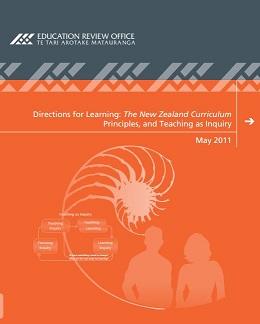Students talk about learning in residential care
Published: 01 Jul 2021
ERO looked at the quality of education for students in Oranga Tamariki Care and Protection and Youth Justice residences. During this, ERO talked to students about their learning in residential care. This short and easy to read guide is aimed at students in residential care and contains information on what students like them told us about their learning.
- Audience:
- Academics
- Education
- Parents
- Schools
- Content type:
- Research
- Topics:
- At-risk students
- Behavioural needs
- Best practice
- Boys' education
- Child wellbeing
- Culture
- Education and care services
- Education outcomes
- Education transitions
- Equitable outcomes
- Good practice
- High needs
- Māori
- Physical and emotional safety
- Priority learners
- Raising achievement
- Social workers
- Teaching
- Te reo Māori
- Transitions
- Vulnerable learners
- Wellbeing















